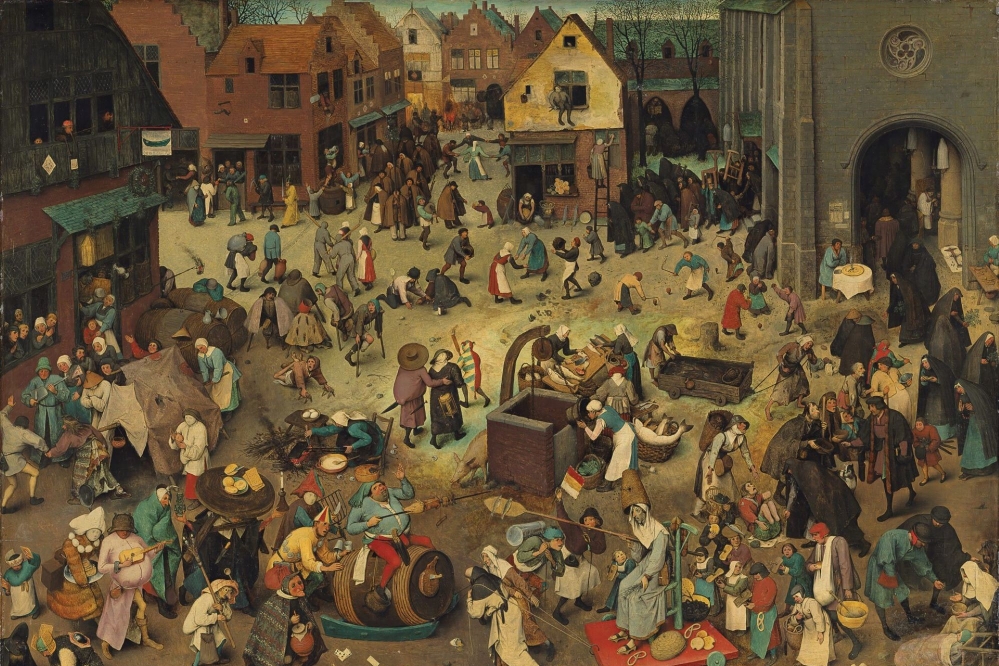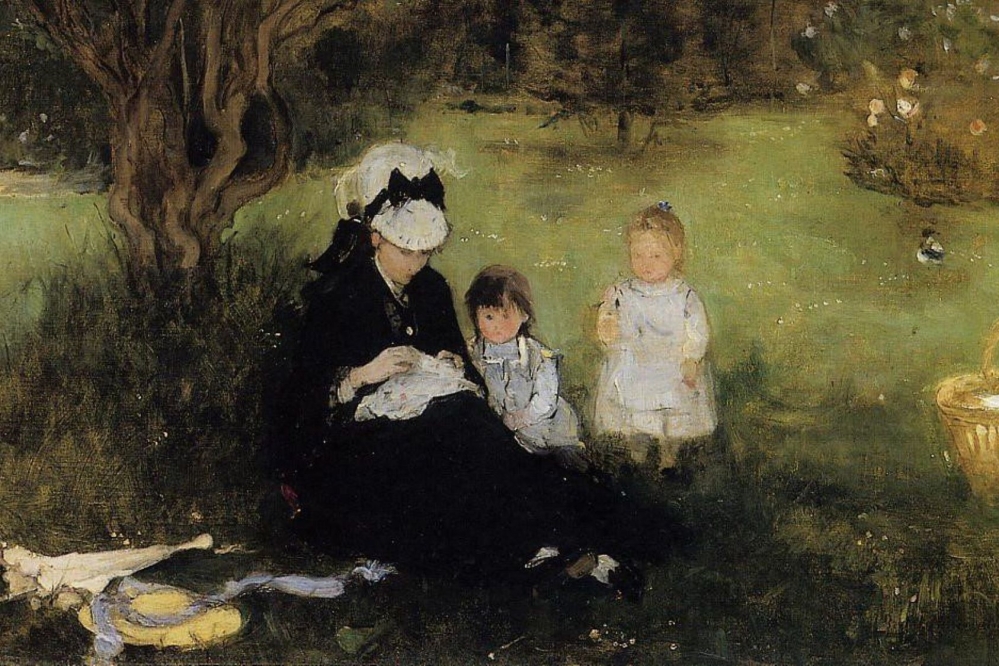From Saturday Night Live to newspaper columns, the US Supreme Court’s recent decision to overturn Roe v. Wade has provoked furious backlashes, several of which branded the ruling an act of ‘medieval’ barbarism. The uninformed and indiscriminate use of the ‘Dark Ages’ as a swear word is more than a historical inaccuracy; it is also an attempt to undermine the moral foundations of our civilization.
Writing in the San Francisco Chronicle, a leader of a Muslim lobby group argues that the Supreme Court’s decision amounts to ‘medieval state church thinking’, going on to say that ‘we need to stop it before it turns into a crusade’.1 From this perspective, failing to ‘stop’ the Supreme Court from handing down its ruling could potentially result in a medieval-style, Christian onslaught against dissidents.
This sentiment is echoed by a London School of Economics blog piece claiming that in terms of what is euphemistically referred to as ‘reproductive rights’, some US states go even further than medieval England.2 Here, the Middle Ages are referred to as the ultimate exemplar of unenlightened barbarity. Camilla Tominey, an associate editor of The Daily Telegraph, described the decision to overturn Roe v. Wade as ‘frankly medieval’, claiming that it had ‘set back women’s rights by not just decades, but centuries’.3 As always, celebrities were quick to join the chorus, with a Glastonbury performer claiming on stage that the decision had ‘reversed the laws back to the Middle Ages’.4
Turning to Hungary, the policies pursued by Viktor Orbán, the country’s sovereigntist prime minister, have widely been condemned as ‘medieval’ by international stakeholders in politics and the media. In 2014, Die Presse, an Austrian newspaper, quoted a little-known opposition politician claiming that a sidetracked proposal on the taxation of internet use was threatening to usher in a ‘digital Middle Ages’.5 Three years later, Germany’s Die Zeit referred to Orbán as a medieval king in a piece patronizingly decrying the country’s alleged democratic backsliding.6 And last year, the new Hungarian law introducing harsher punishments for paedophiles and a ban on the promotion of LGBTQ+ identities to children was branded ‘medieval and irrational’ by a left-liberal sociologist approvingly quoted in Profil, the Austrian equivalent of Germany’s Der Spiegel magazine.7
Institutions and designations associated with the medieval period are themselves framed as a threat to modern democracy
In other cases, institutions and designations associated with the medieval period are themselves framed as a threat to modern democracy, as exemplified by a proposal to revert to the pre-communist era names for counties and their government commissioners. A Bloomberg article entitled ‘Orbán Draws on Medieval Map of Hungary as Part of State Overhaul’ points out that ‘The change in geographic terminology may seem trivial but is part of Orbán’s penchant for reviving symbols from Hungary’s past and eagerness to characterize the nation’s four decades under communism as a historic aberration’.8 Here, the author invokes clichés associated with the Middle Ages such as belligerence and brute force that imply that the proposal to return to traditional designations is in fact part of an obscure ‘authoritarian’ project to restore the country’s historical borders.
Occasionally, deeds of revered medieval figures are taken out of context and used to justify political ends. For example, a misinterpreted 1000-year-old excerpt from King St Stephen’s Admonitions to his son Emeric was used to discredit and undermine the Hungarian government’s stand against illegal immigration at the height of the migrant crisis in 2015.9 From this standpoint, the medieval king’s cautioning against a monolingual royal court amounts to an embrace of a contemporary multicultural utopia.
It should come as no surprise, then, that even universities’ Medieval Studies departments cannot escape becoming battlegrounds of the culture war. Take the example of the ‘controversy’ surrounding the recent book The Bright Ages, written by two ultra-progressive American academics, which claims to ‘recast the European Middle Ages for what it was, capturing this 1,000-year era in all its complexity and fundamental humanity’. The book is as much a political statement against ‘whiteness’, which its authors call ‘a modern idea with medieval roots’,10 as it is a historical account (Poland and Hungary, for example, are entirely absent). Even this woke re-imagination of medieval history, however, was criticized for its ‘white-centrism’ in a review commissioned by the Los Angeles Review of Books. ‘While The Bright Ages challenges some racist and fascist notions’, the review read, ‘Europe, Christianity, and whiteness remain central themes’, while the authors ‘rely on their whiteness for authority’. What followed after the review’s rejection (it was eventually published elsewhere) was an angry Twitter spat, with the indispensable accusations of racism and the ensuing public apologies and account suspensions thrown around.11 The scholarly and intellectually demanding activity of studying medieval history is reduced to a pretence for political campaigning and advocating the woke agenda.
The roots of using our medieval past as a disquieting backdrop to the contemporary secular-liberal project are powerfully laid bare in the US Catholic author George Weigel’s 2006 book The Cube and the Cathedral. In the book, the starkly modernist ‘cube’ of the Great Arch of La Défense in Paris is contrasted with the medieval civilization that produced the cathedral of Notre-Dame. Modernist plans to reinvent the iconic cathedral after the fire that devastated it in 2019 instead of restoring the building in its original form were a reflection of the secular West’s unease with its medieval past. The great and forward-looking accomplishments of medieval civilization such as the Cluniac reform that is so eloquently described in Kenneth Clark’s Civilization are reduced to a sidenote.
In fact, it is now well known that besides all its bleakness and violence, medieval Europe was anything but a ‘world lit only by fire’. The growth of early Christian monasteries encouraged literacy and learning, with important implications for later Western values and attitudes. Steady, if slow, progress was made in the natural sciences, and the Carolingian Renaissance saw a flowering in the arts, literature, architecture, and other cultural realms. Depictions of the Middle Ages as a monolithic period of unrefined stagnation are easily disproven by the journey from the pre-Romanesque Church of St Donatus in Zadar, Croatia, to the great Gothic cathedrals of Bourges or Cologne. Petrarch, the man who invented the concept of a ‘Dark Age’, regarded the post-Roman centuries as ‘dark’ compared to the ‘light’ of classical antiquity, which, ironically, is itself being recast as a cradle of racism in the contemporary culture wars.12
In colonial times, so-called ‘primitive societies’ were often unfairly labelled uncivilized or even unfit for civilization
The popular and politically motivated portrayal of the Middle Ages as an epitome of barbarism second only to the Nazi period echoes a disturbing loss of interest in the discipline of history. In 2018, it was reported that the number of history majors at US colleges and universities had dropped by more than 30 per cent.13 As pointed out by the American commentator Rod Dreher, this tendency runs parallel with the decline of historical memory and the practice of remembrance in our societies.14 In colonial times, so-called ‘primitive societies’ were often unfairly labelled uncivilized or even unfit for civilization. Today, as the past is increasingly forgotten and its legacy branded a negative influence on our contemporary lives, our own medieval heritage is being vilified by a comparatively small but influential clique. Paradoxically, those who routinely lecture the public on the woes of medieval ideals tend to know little about history or the lessons long bygone centuries have to offer. From the point of view of the secular-liberal elite, medieval ideals such as valour, loyalty, personal honour, and chivalry, are seen as obsolete, absurd, and even dangerous.
Over the coming years, reclaiming Europe’s medieval history and dispelling the stigma surrounding the continent’s pre-Columbian centuries will be an essential task for those of us seeking to preserve the foundations of Judeo-Christian civilization and culture.
NOTES
1 Asifa Quraishi-Landes, ‘Abortion Bans Trample on the Religious Freedom of Muslims, Too’, San Francisco Chronicle (23 June 2022), www.sfchronicle. com/opinion/openforum/article/abortion-bans- religion-17259119.php, accessed 16 July 2022.
2 Pippa Norris, ‘The Reversal of Reproductive Rights in America Is Contrary to Global Trends. Why? Compared with Similar Western Democracies, Republican Voters Are Exceptionally Socially Conservative, Religious and Authoritarian’, LSE United States Politics and Policy blog (30 June 2022), https://blogs.lse.ac.uk/usappblog/2022/06/30/ the-reversal-of-reproductive-rights-in-america-is- contrary-to-global-trends-why-compared-with- similar-western-democracies-republican-voters-are-e- xceptionally-socially-conservative-religious-and-au/, accessed 16 July 2022.
3 Tom Waitling, ‘“Setting women’s rights back centuries” Tominey Slams “frankly medieval” US Abortion Rule’, The Daily Express (26 June 2022), www.express.co.uk/news/world/1631406/Camilla-Tominey-roe-v-wade-frankly-medieval-abortion-ruling-joe-biden-lbc-vn, accessed 16 July 2022.
4 Josh Halliday, ‘“Back to the Middle Ages”: Glastonbury Stars Rail against Roe v Wade Decision’, The Guardian (25 June 2022), www.theguardian.com/music/2022/jun/25/glastonbury-stars-roe-v-wade- decision-billie-eilish-phoebe-bridgers, accessed 16 July 2022.
5 Peter Bognar, ‘Digitales Mittelalter: Ungarn empört über Orbáns Internetsteuer’, Die Presse(28 October 2014), www.diepresse.com/4396746/ digitales-mittelalter-ungarn-empoert-ueber-orbans- internetsteuer, accessed 16 July 2022.
6 Steffen Dobbert, ‘König Viktor und die elf Thürme von Tyukod’, Zeit Online (7 September 2017), www.zeit.de/politik/ausland/2017-08/ungarn-viktor-orban- eu-gelder-autokratie-rechtsstaat/komplettansicht, accessed 16 July 2022.
7 Franziska Tschinderle, ‘Orbans Kindertheater’, Profil (31 July 2021), www.profil.at/ meinung/franziska-tschinderle-orbans-kindertheater/401458765, accessed 16 July 2022.
8 András Gergely, ‘Orban Draws on Medieval Map of Hungary as Part of State Overhaul’, Yahoo Finance (22 June 2022), https://finance.yahoo.com/news/orban-draws-medieval-map-hungary-105624518.html, accessed 16 July 2022.
9 Iván Miklós Szegő, ‘Mit mondott Szent István a jövevények befogadásáról’, HVG.hu (20 August 2015), https://hvg.hu/kultura/20150820_Mit_mondott_Szent_ Istvan_a_jovevenyek_bef, accessed 16 July 2022.
10 Michael Warren Davis, ‘The Bright Ages’, The American Conservative (24 March 2022), www. theamericanconservative.com/the-bright-ages/, accessed 16 July 2022.
11 Jennifer Schuessler, ‘Medieval Scholars Spar on a Modern Battlefield: Twitter’, The New York Times (6 May 2022), www.nytimes.com/2022/05/06/arts/ medieval-race-twitter.html, accessed 16 July 2022.
12 Frank Furedi, ‘The Woke Crusade against Western Civilization’, Spiked (24 August 2021), www.spiked- online.com/2021/08/24/the-woke-crusade-against-western-civilisation/, accessed 16 July 2022.
13 Jason Daley, ‘Why Are Fewer People Majoring in History’, Smithsonian Magazine (29 November 2018), www.smithsonianmag.com/smart-news/why-people-major-history-180970913/, accessed 16 July 2022.
14 Rod Dreher, ‘The Fragility of Historical Memory’, The American Conservative (3 November 2015), www.theamericanconservative.com/the-fragility-of-historical-memory/, accessed 16 July 2022.



